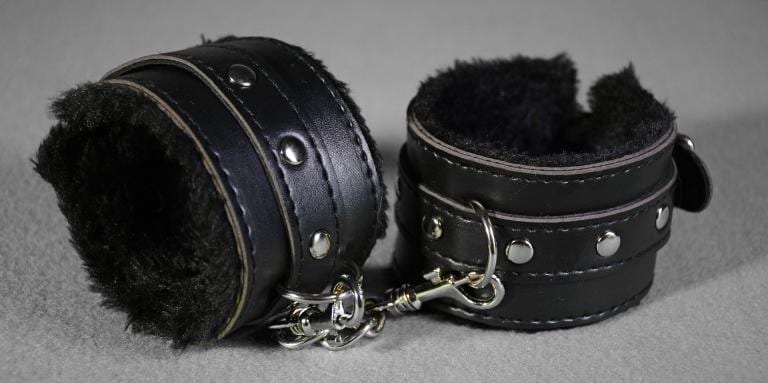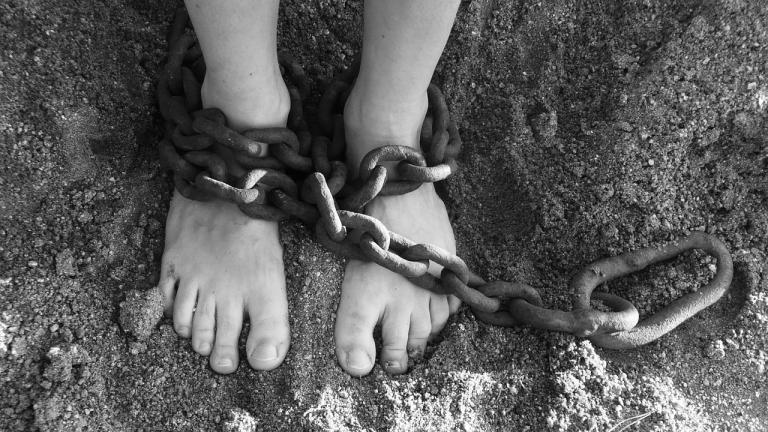About a year and a half ago, my older children came to me and told me that something had to change. Their father had been abusing alcohol for most of our married life, and his alcoholism had reached a point where it was having serious negative effects on the rest of the family. My kids were dealing with mental health problems, they felt isolated and controlled, and they needed me to do something to stop the chaos and abuse that my husband’s addiction had brought to our home.
So I set boundaries. They didn’t work: alcohol abuse tends to be accompanied by a sense of entitlement and self-pity, and my husband felt like he was being treated like a bad dog or a slave. The drinking didn’t get better, and the intolerable behaviours got worse. Several months later, I ended up calling the police.
We separated and began trying to fix the marriage. We went to counseling. We tried mediation. I hoped and prayed that he would finally hit bottom, decide to give up the bottle and commit himself to building the life we’d always dreamed of.
In the meantime, I tried to manage looking after our children alone. We have seven. The oldest confronted me and moved out because she was afraid that I was going to give in to pressure from her father and let him come home without making any real change. She was old enough to get out and she didn’t want to live with the fear of going back to the cycle of abuse.
This left me with six, one of whom is severely autistic, on an isolated property several hours away from my family. I had few friends in the area – it’s difficult to meet people when you’re trying to watch a toddler and a special needs child, and my husband tended to lurk, drunk and intimidating, whenever my kids or I had guests over. My family and old friends wanted to help, and they made a lot of sacrifices to do so, but they lived far away and most of the time I was going it alone.
Finally, when counseling had failed and mediation was going nowhere, my husband got into a fight with our second oldest daughter. I realized that my children needed the security of knowing that we weren’t going to be going back to the life we had before. I needed to make a break. We needed to move on so that they, and I, could heal.
Coincidentally, (and depending on your theology you might say providentially) less than a week later my best friend of 18 years asked me if he could move in. He’d seen that I was struggling, that the children were suffering, and he wanted to be able to provide the stability and security that none of us had known for years.
Without hesitation, I said yes.
It’s Not About Sex
Men, and particularly Catholic men, tend to approach the question of remarriage in terms of sex. In cases where a marriage is abusive, you are of course allowed to leave – indeed, it may be morally obligatory if there is a threat to the life and well-being of the children. But in such cases a woman (statistically, it is usually a woman) is expected to live in continent singleness, devoted to the vows that she made to a man who mistreated her.
This isn’t seen as a problem because “nobody ever died from lack of sex.” Nevermind that an adequate morality cannot treat death as the only relevant negative outcome; the more pressing issue is that for a mother having a partner is not primarily about having someone to rock the bed with.
When the Church says to women “You may divorce – but you may not remarry” they are, in effect, saying that you have two choices: make it work with your abusive spouse, or commit to single parenting until your children are grown. If the woman in question has been faithful to the Church’s teaching about openness to life – or if the abuser has used repeated pregnancy as a means of keeping his spouse dependent on him – then this can create a situation that is genuinely unmanageable.
Simply put, single-parenting a large brood of children is incredibly difficult. I was doing it in Canada, with the support of a very generous social security net, and with help from a rather large extended family. I’m tremendously grateful for those supports – but they only just barely kept me afloat. I was constantly exhausted, rarely had time for basic self-care (and by “self-care” I mean having a shower, not taking a spa day). When emergencies came up I was at a loss for what to do.
In practical terms, yes, somebody could die of that.
My car is currently held together with duct tape, its body a testament to all of the minor accidents that I got into because I had to get my children to this or that when I was really too tired to be on the road. Fortunately, I never got into a serious crash.
I did manage to break my toe walking across the room one night to put my toddler back in his bed; I was so exhausted I couldn’t safely navigate my own bedroom. The next day, when I realized that it was too badly injured for me to go and pick my son up, I called the school in tears and asked if there was a way to get him home. Fortunately the principle said “That’s no problem – what I’m worried about is how to get you to the hospital.” I had no plan for that. She said she’d pick me up and drive me there.
How does the Church answer this? “Carry your cross.” I get that. I’m not opposed to suffering for a good cause. But here’s the thing: there are children involved. Children whose physical and mental health is directly dependent on the ability of their parents to provide them with a safe, stable, well-managed home life. No amount of shouldering my cross could make me capable of adding hours to the day. No amount of prayer added magical reserves of energy to my depleted physical and emotional stores.
And this meant that my children were also expected to jump in an pick up the cross for me whenever I stumbled and fell. It was a lot for them to deal with and frankly it was neither fair nor just: an innocent child who has been neglected or mistreated by an abusive parent should not be expected to help the other parent “bear the cross” of waiting and hoping indefinitely for the abuser to repent.
The Matrimonial Mousetrap
In theory, Church communities should be there to provide care and support for women in these circumstances, but in practice that’s rarely the case. Many parishes simply lack the resources, but in more conservative areas women who have suffered abuse often find themselves facing suspicion or pressure to “fix the marriage.” They may have to recount painful details of their personal life in order to prove that they were really abused, and if the abuse didn’t involve actual physical beatings there’s often a perception that it doesn’t count and she should just “forgive.”
This means that women, finding themselves trapped between a rock and a hard place, end up returning to marriages that are physically or psychologically unsafe – not only for the woman herself, but also for the children. There were several times in the year that my ex and I were separated when I almost caved and brought him back home. The relentless pressures of trying to manage alone were enough that it seemed like maybe it would be a good gamble to hope that things would be different this time round.
By telling women that they can’t find a new partner, can’t build a safe and functional family life, Catholic teaching creates a situation that works in favour of abusive spouses. The institution of marriage comes to be privileged over the actual good of vulnerable women and children. The symbolism of the cross ceases to be centred on liberation from sin and death, and becomes instead an indefinite sentence to suffering where the only possible resurrection lies in the hope that the abuser will reform himself. This empowers abusive people to hold their families hostage and employ the vows of marriage as a bulwark against the necessity of repentance.
I don’t think this is what Christ intended.
It’s now a month since my new partner moved in, and in that time we’ve built a home life that is not only manageable but actually happy. My children’s mental health has improved. The house no longer looks like ground zero of some domestic disaster. I can rest when I’m sick, secure in the knowledge that there is another functional adult managing the household. Alcoholism no longer has a place in our family, or a strangle-hold on my hopes for the future.
According to the Church, this is a mortal sin. I am barred from communion, and so is the man who stepped up to help me pick up the pieces of a family fragmented by addiction and abuse. While the current Pope is trying to create space for people in situations like mine to exercise conscience, for priests to use their judgment so that victims can be protected and included, conservatives continue to fight tooth and nail to make sure that abused and neglected spouses are left without options.
This condition of slavery to another person’s sins is not, I think, what Christianity is supposed to produce. It privileges the law over the actual good human beings, and prevents God’s providence from being able to deliver us into new life.
Stay in touch! Like Catholic Authenticity on Facebook:
















